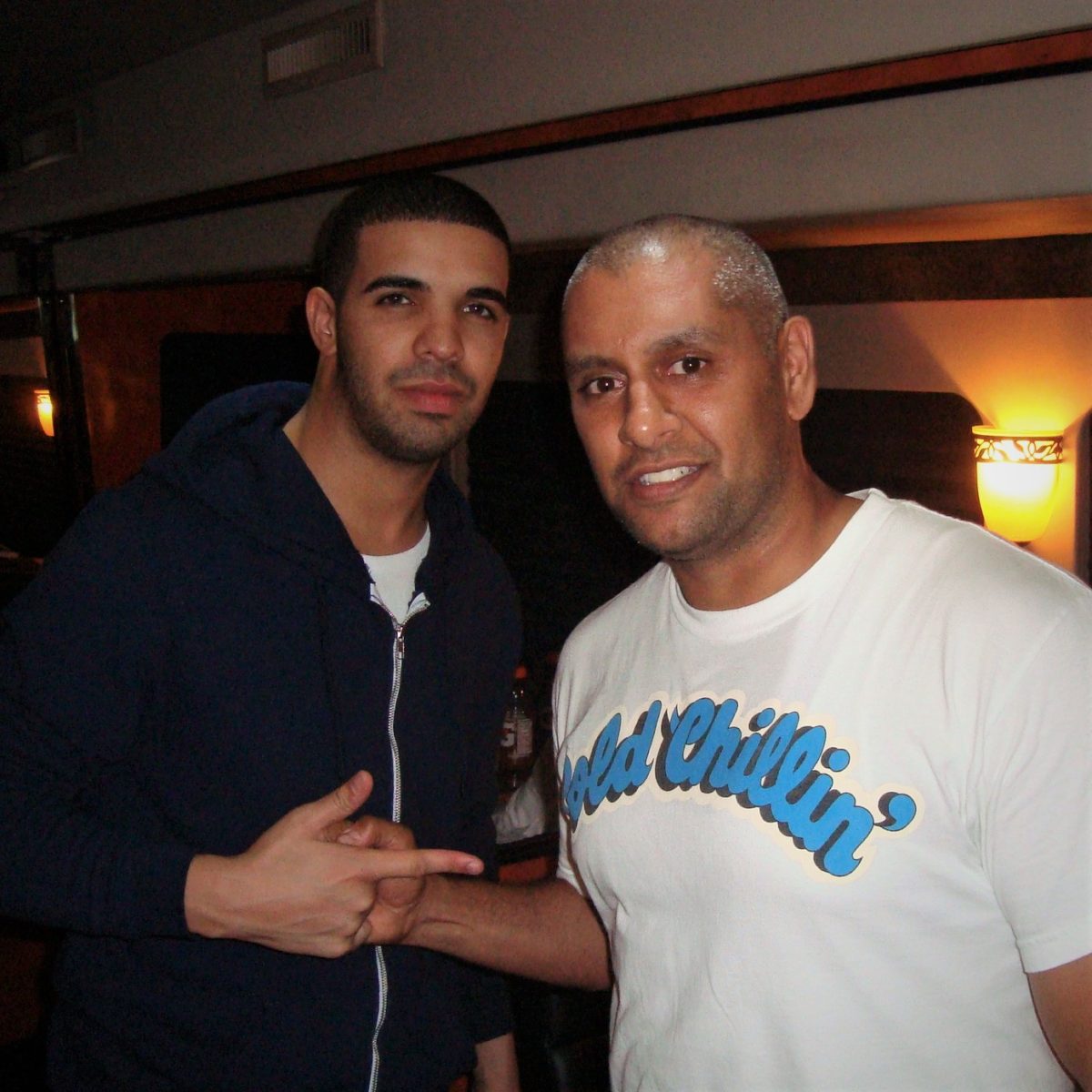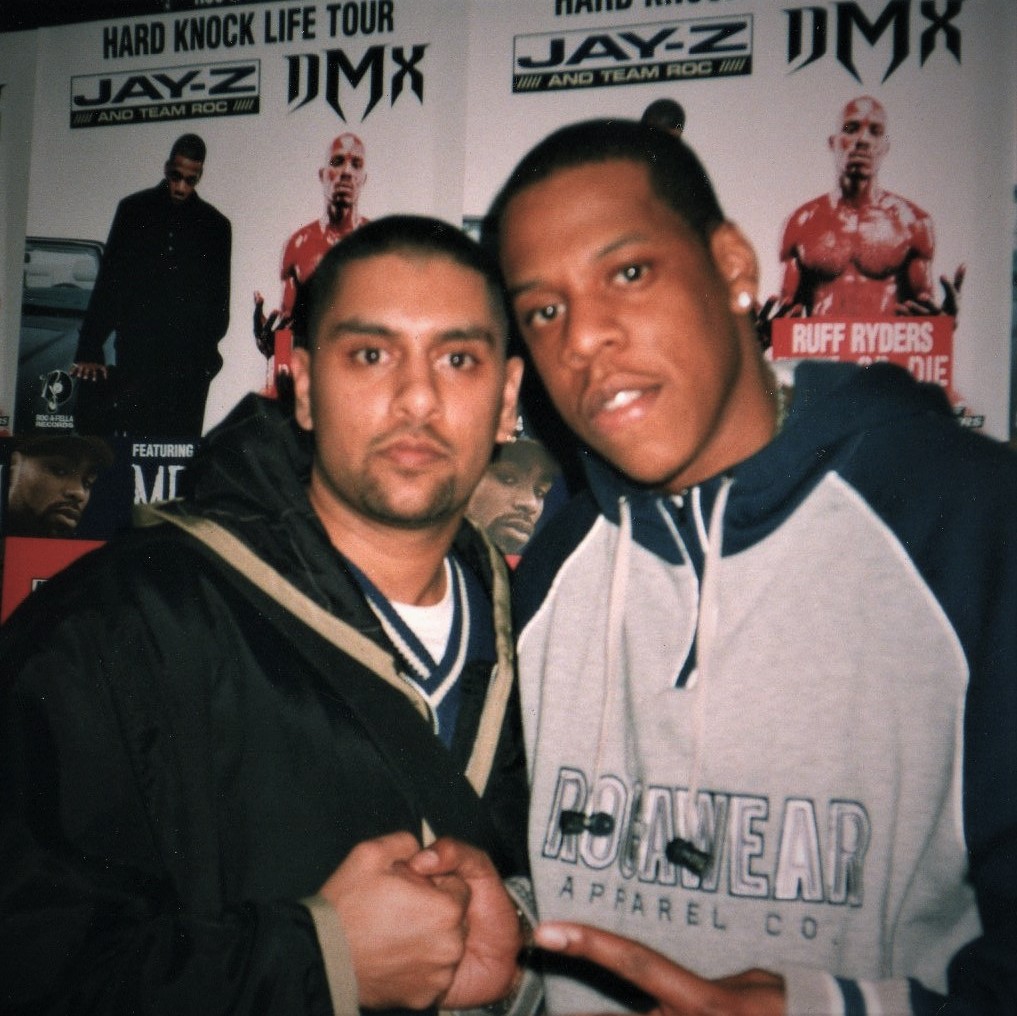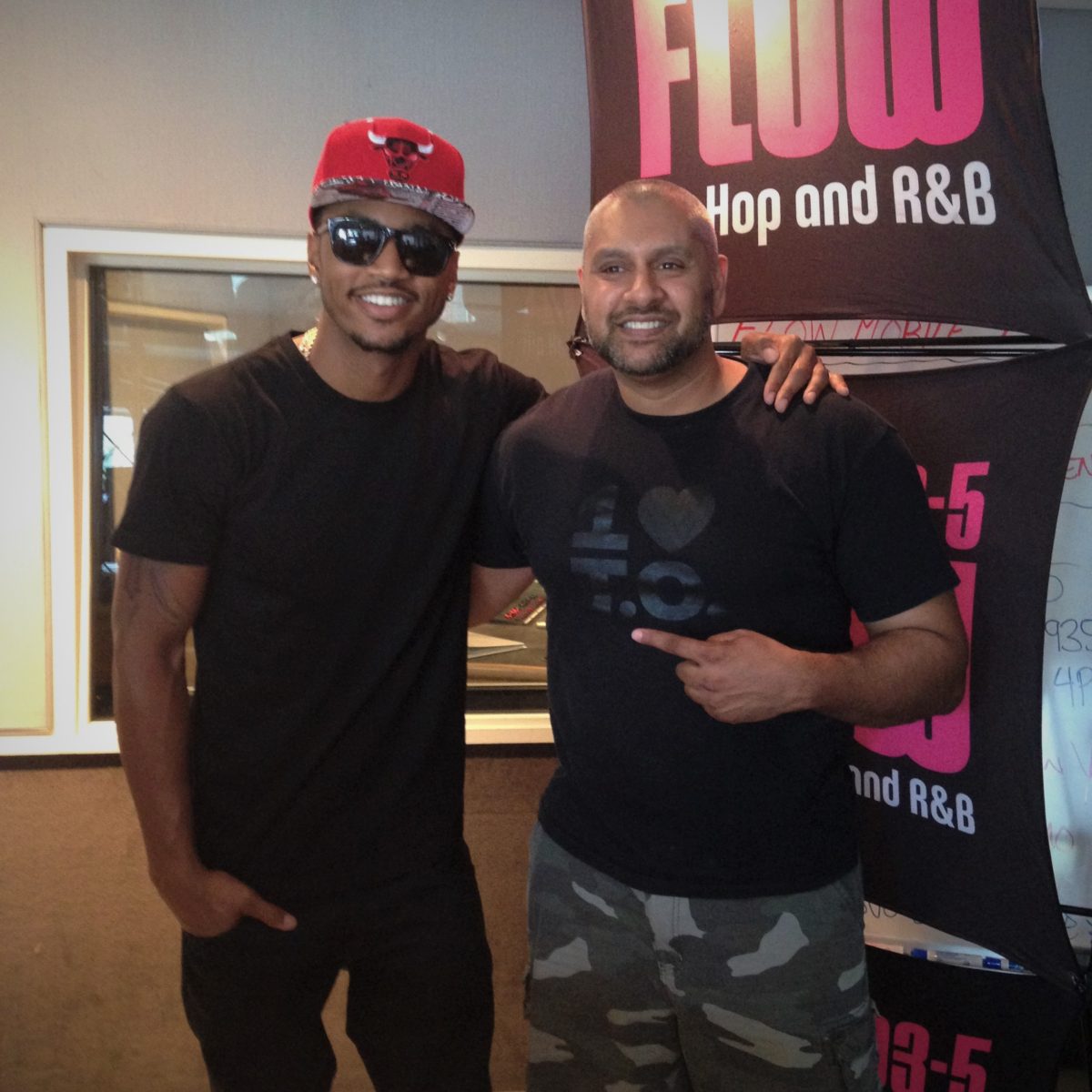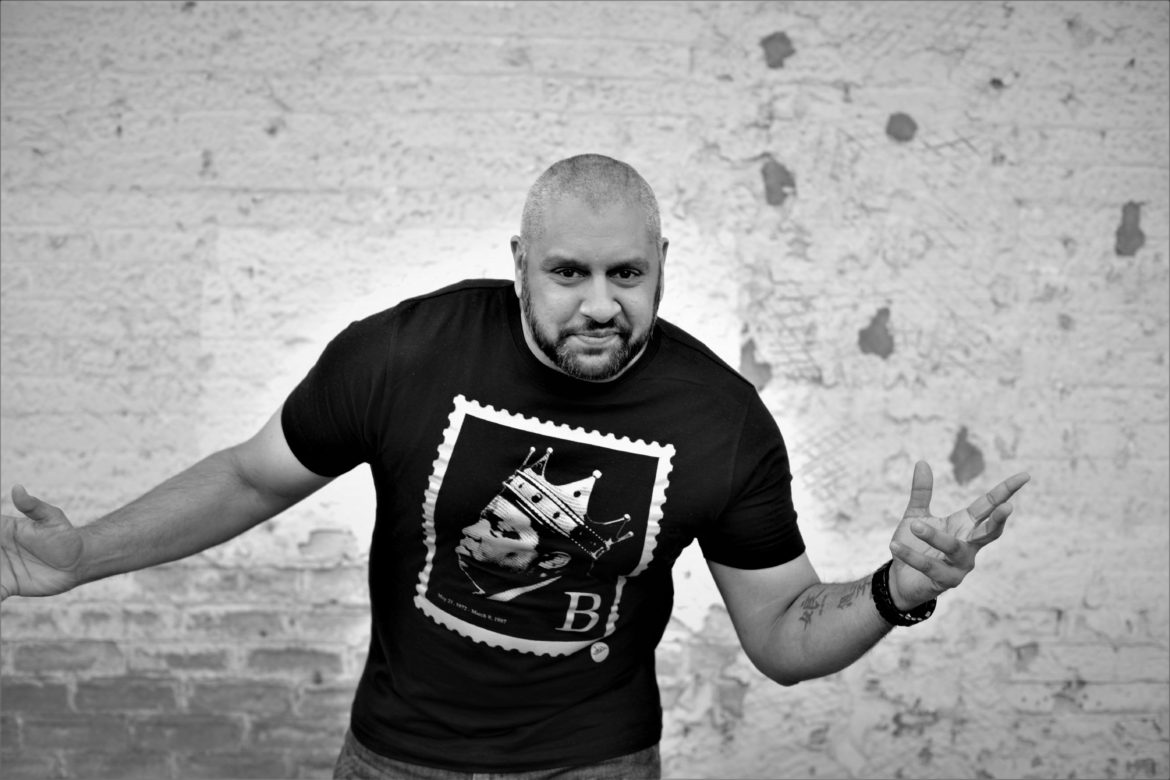When it comes to hip-hop, Mastermind has earned his spot as a trusted figure in Canada. With over 33 years of experience — as a DJ, on-air radio personality and influencer — he is known for his outspoken personality and intrinsically sharp taste in music.
Throughout his career Mastermind, born Paul Parhar, has often been credited by artists for giving them their first radio play or by listeners for giving them their very first introduction to hip-hop. Perhaps, most notably, at the beginning of his career Drake flew to Calgary to get some advice from the seasoned hip-hop when he was working at VIBE 98.5 FM. Mastermind’s continued support of homegrown talents has played an important role within the Toronto music industry.
Earlier this year Mastermind’s departure from FLOW, where he was an on-air personality and assistant program director, started a firestorm on social media. Many fans were both confused by the station’s decision and excited to see what may be in store for Mastermind in the future. We caught up with him to reflect on his career, the legacy he’s built and what’s next.
In past interviews, you talked about falling in love with hip-hop as a fan, but what made you pursue this as a career rather than just being a fan?
Radio was interesting ’cause as a kid that was one of the only mediums we had in terms of being exposed to music other than purchasing it yourself, or maybe if you were lucky seeing something on TV here and there. It kind of was just something that I started enjoying thinking about and I kind of fell into it almost accidentally because I was a fan of radio shows in the city. I got to kind of work with someone who was doing a show, and seeing the ins and outs of how the operations work and what they were doing. I kind of enjoyed seeing that and then when an opportunity presented itself to me to do it myself it was almost accidental, but it gave me the opportunity to kind of do it. So, it was almost accidental more than outright pursuing it.
The biggest obstacle, at least in this country anyway, is the outlets who want to actually support hip-hop.
What obstacles have you encountered throughout your career?
The biggest obstacle, at least in this country anyway, is the outlets who want to actually support hip-hop. The fact that there aren’t a lot of outlets is the biggest obstacle. Trying to convince people that the music was popular, there was an audience for it and people actually wanted to listen to it — that was one of the biggest challenges.

What would you say you’ve learned from encountering that challenge of trying to garner exposure and find people that want to support hip-hop culture within Toronto?
A big part of it is trying to find like-minded people that are also in positions to actually support it. For example, the person that presented me with my first opportunity to do a radio show was somebody who was programmingthe radio station, who was genuinely a fan of hip-hop. You have to find people who are in the same mindset as you, who are in positions to potentially make change or make power moves and hopefully align yourself with them to further everybody’s agenda orlove for said music.
You’ve been sharing on social media some photos and memories of all the great talent that you’ve met over the years. What would you say are some of your most memorable moments or interactions that you’ve had in your career thus far and why?
There’s so many, and it’s kind of hard to pick one or two because they all have their own sentimental value or significance … I’ve been fortunate enough that I’ve been able to be around enough people that are legendary in the actual genre. I’ve been exposed to them in one way or another, whether it’s through interviews or just being involved with them at a show, opening for them as a DJ for their concert or whatever. Just being able to say that I’ve been around people that are still in the game and that are considered legends is kind of cool.
You’ve been regarded by many as a legend and staple in the Toronto music industry while playing an instrumental role in supporting local talent, whether that be via the “Made In Toronto Takeover,” giving a shout out on social media or even sharing advice and making meaningful connections. How important do you think embracing homegrown up and coming artists is for the city as a whole?
It’s been a challenge because I’ve done it throughout my career, whether it was back in my CHRY days or CKLN days, all the way up to the FLOW days with the “Made In Toronto Takeover.” It’s challenging because you want to support, but you also want to co-sign artists that you actually believe in and unfortunately, just like any city around the world, there’s going to be artists who aren’t as good. So, it’s challenging because everybody expects the same level of support. I’ve gone through instances where you give somebody an outlet or a shout [out] and people argue and say let the audience decide whether they’re good or not good, or whether they’re deserving. There is some validity to that, but there’s also something to be said about being a curator, or somebody who could say yes, this is a co-sign so to speak, where you’re like ‘this actually is head and shoulders above everything else.’ … The thing about Canadian content is that if you’re playing stuff strictly based on the rule of Canadian content, meaning the 35 per cent that the CRTC says radio stations have to play, it’s not a fair playing field. Why should an artist who doesn’t have a lot of fans, maybe their music isn’t as good, and they haven’t achieved quite the same success get played the same way a Drake or a Weeknd or a Tory should, or any of those artists who have established themselves as worldwide superstars who happen to be Canadian. It’s a bit of a slippery slope because there’s artists who say that they should deserve those same opportunities and shots without having to prove themselves or put in the work … but I do believe it’s important for us to support our own.
For the longest time we’ve had this mentality in Toronto that our own stuff is not as good as anywhere else, even though a lot of us believed it was. I’ve felt we have some of the greatest producers in the city for the longest time, we just never got the right exposure or the right shine. I believe our rappers are just as good as anywhere else. Now in 2020 it’s being proven because three of the biggest artists in the format are from our city.

What are some examples of success stories of individuals who you have supported — how do you support them and what they went on to do?
Based on my tenure in the industry here, if you are a hip-hop, or in some degree an R&B artist, that has achieved any kind of success I’ve had some connection to from the ground floor. Whether it be Kardi or Choclair or K-os, there’s always some kind of connection. I’ve just been a part of their support system. In some cases, I played a bigger role and in other cases I played a small role, but there’s usually some sort of connection and it’s always great. Something that we did in the last part of my time at FLOW with the “Made In Toronto Takeover” is give a lot of artists an opportunity to get heard on that platform that otherwise may not have gotten played on the radio anywhere. Artists will always remember that first time that they got played on the radio. If they’re saying ‘I got played on the “Made In Toronto Takeover” because I submitted it and Mastermind heard it and he liked it and he put it on the station,’ then that’s great. They remember me for that, and if that’s a small part of their journey to whatever level of success they achieve then that’s amazing. I did my part.
If a company feels that I’m not the right fit … cool, just as long as they continue to run it properly with integrity and doing it the right way.
You’ve said before that Toronto having a hip-hop radio station is important even if the station goes on without you.
I think a hip-hop station is integral because … to me it’s silly that we only have one 24-hour commercial hip-hop station in the entire country. I understand the commercial challenges that exist with regards to advertising, systemic racism, demographics and all that s—, but it’s still weird to me that the biggest genre on the planet can’t afford to have companies supporting that format in multiple cities in this country. I thoroughly support Toronto having an urban radio station with or without me. If a company feels that I’m not the right fit or we’ve expired our time together or whatever the case may be, cool, just as long as they continue to run it properly with integrity and doing it the right way. Then as long as they still exist, I’m good with that because we need that in this city, let alone this entire country.
What do you think about the current state of hip-hop as a whole?
It’s good and bad. I think it goes through phases. I’ve never been a huge fan of this kind of mumbling trap type of thing, but I understand its role. People tell me just like I’ll tell people that if that’s not your thing, there are other places to explore and find the kind of hip-hop that you’re into. People continue to make that stuff, you just have to kind of find it now. Whether or not it gets played on the radio … that’s a completely different scenario. Radio is following charts, it does its own market research and the audience tells you the things that they want to hear and what they don’t want to hear … I don’t know what the next phase is. Every year or every couple of years, there’s always one producer to kind of dictate the sound of hip-hop. Then that producer gets replaced by another producer who might evolve the sound and so on and so forth. So, I don’t know what direction it’s headed, but all I really care about is that the popularity of the format continues. I don’t want to see it erode.
Although some stations are beginning to embrace local talents in the age of modern technology how do you think social media is helpful and/or hurtful to up and coming artists?
I don’t think it’s hurtful at all. I think artists have an abundance of tools at their fingertips and at their disposal that other artists before them, even 10 to 15 years ago, if not longer, didn’t have. Artists need to utilize all those different tools and those platforms to help their own personal brands. Back in the day we [would have to] press a record, whether CD or vinyl, and get those in the hands of DJs and hope that the DJs like that and that they would expose it and then maybe eventually get added into rotation. Not to mention, spending tons of money on promotion, whether it be radio promotion or regular promotion printing up stickers, T-shirts, flyers and posters … Now you can literally do all of that on social media. So, to not utilize those platforms, I think is a detriment to artists.
Some have argued that social media or online music discovery sites like SoundCloud, for example, have replaced the value of radio in breaking new artists. What do you think about that?
There’s research that kind of disputes that and says that the masses are actually exposed to new music through radio more so than any other platform. The people that are getting their new music exposure from online are the really savvy music hungry, small percentage of people.

On the subject of radio, obviously in March news broke of your involuntary departure from FLOW. It took the local hip-hop community by storm and people were very upset and expressed that on social media. What can you say about your departure now?
They decided it was a restructuring thing. The station wanted to go in a different direction, which happens in radio quite a bit. It wasn’t something that I saw coming and I understand why people would be upset because I played a pretty big role in helping artists. My stance is still the same, I’m actually grateful that they kept the station because it could have gone worse. It could have turned into a pop or country station or whatever they wanted to do. So, for a company to continue doing hip-hop with people that I helped bring to that radio station, whether me hiring them directly or influencing them to be hired … some of those people are still there. That’s an important thing for me.
I’m grateful that I’ve been able to do something that I would have done for free and somehow managed to turn it into a career.
Right now, amid the COVID-19 global pandemic, many are reflecting on what they are most grateful for. After 33 years what are you most grateful for?
I’m grateful that, you know, I’ve been able to do something that I would have done for free and somehow managed to turn it into a career, make a living off of it and support my family. As well as being fortunate enough that I was able to leave some kind of positive impression with people so that even after I’ve been off the radio now for a [few] months, there’s still people who are interested in wanting to speak to me about what I’ve done and what I may be doing going forward … I’m grateful for the fact that I was able to do it for this amount of time and leave some kind of positive impression with the people that were along for my journey.
What, if any, regrets do you have?
I think maybe one of the biggest ones is not potentially exploring options outside of Canada [like] seeing if there were potential opportunities in the States or expanding my own personal brand a little more aggressively. Also, maybe, while still being on the radio, broadening into the podcast world as well, to make sure that the brand was growing at the same time as other things were growing.
After spending almost 10 years at FLOW, what are your plans moving forward? What’s next for Mastermind?
I actually don’t know what the next chapter is. There’s been a few things presented to me, but you know COVID has kind of put the brakes on a few things, just because the dynamics of how businesses operate, and work changed a little bit. I actually don’t have anything to report as to what might be next … Someone had asked me if I miss being at work and I kind of said, no. I haven’t had a break, even with the 10 years that I’ve been here and then the 10 years prior to that. I literally haven’t had two or three months off at any given time to just kind of sit back and relax. If the pandemic hadn’t been happening then obviously I would have taken an extended vacation and gone and enjoyed life a little bit. If the world opens up a little bit and things are safe, I might do that and then decide what the next opportunity could be.
Photos supplied courtesy of Mastermind




Comments are closed.